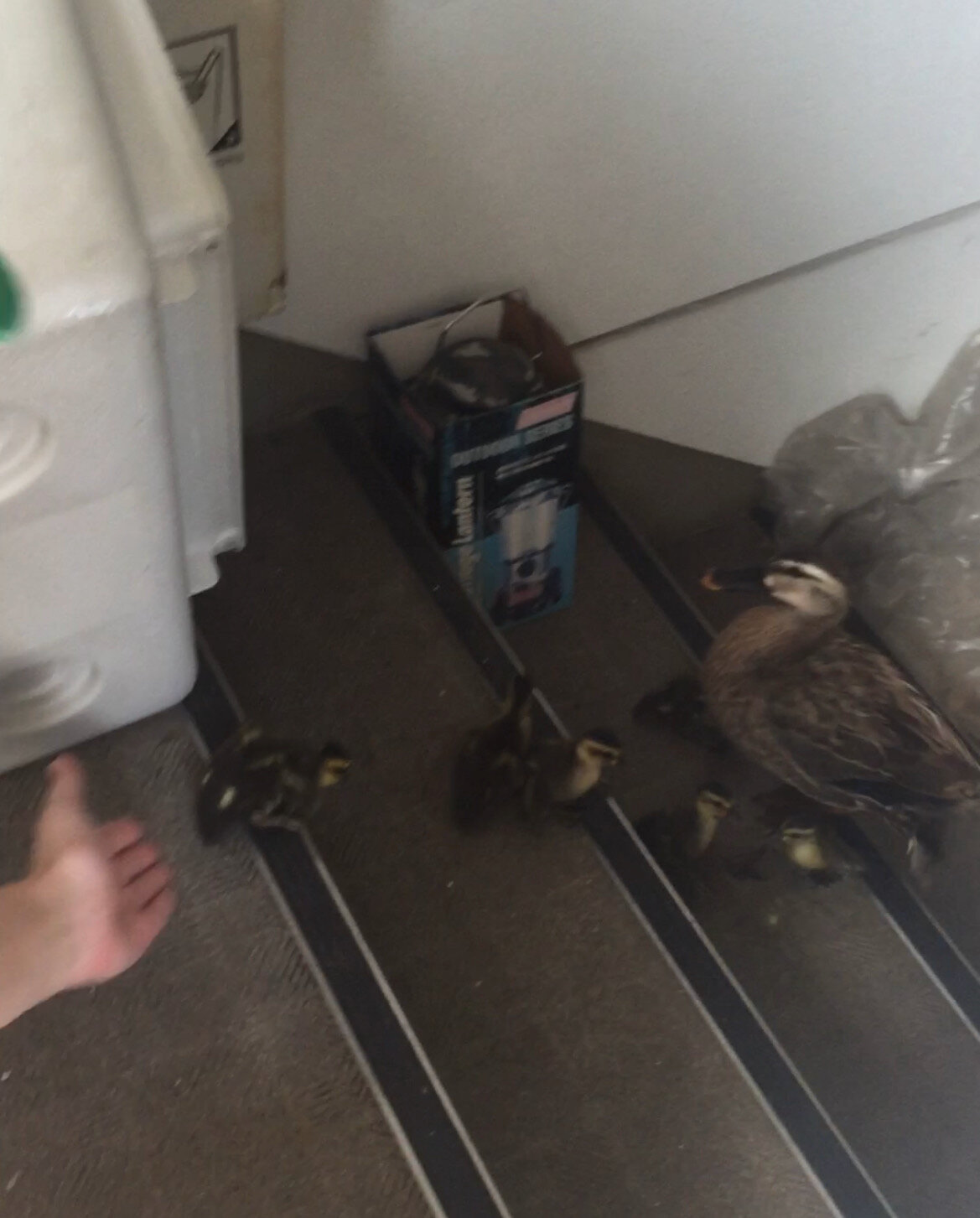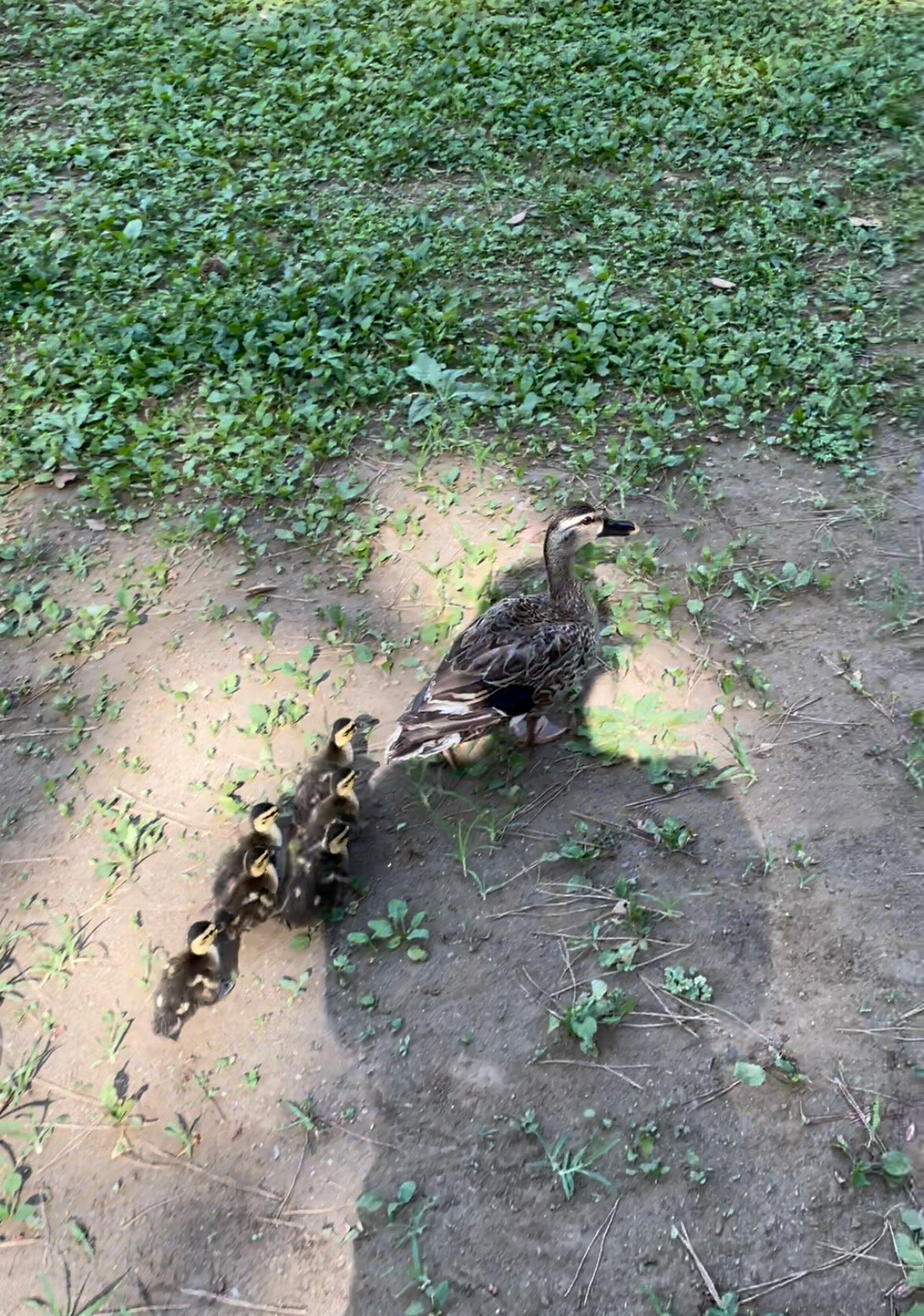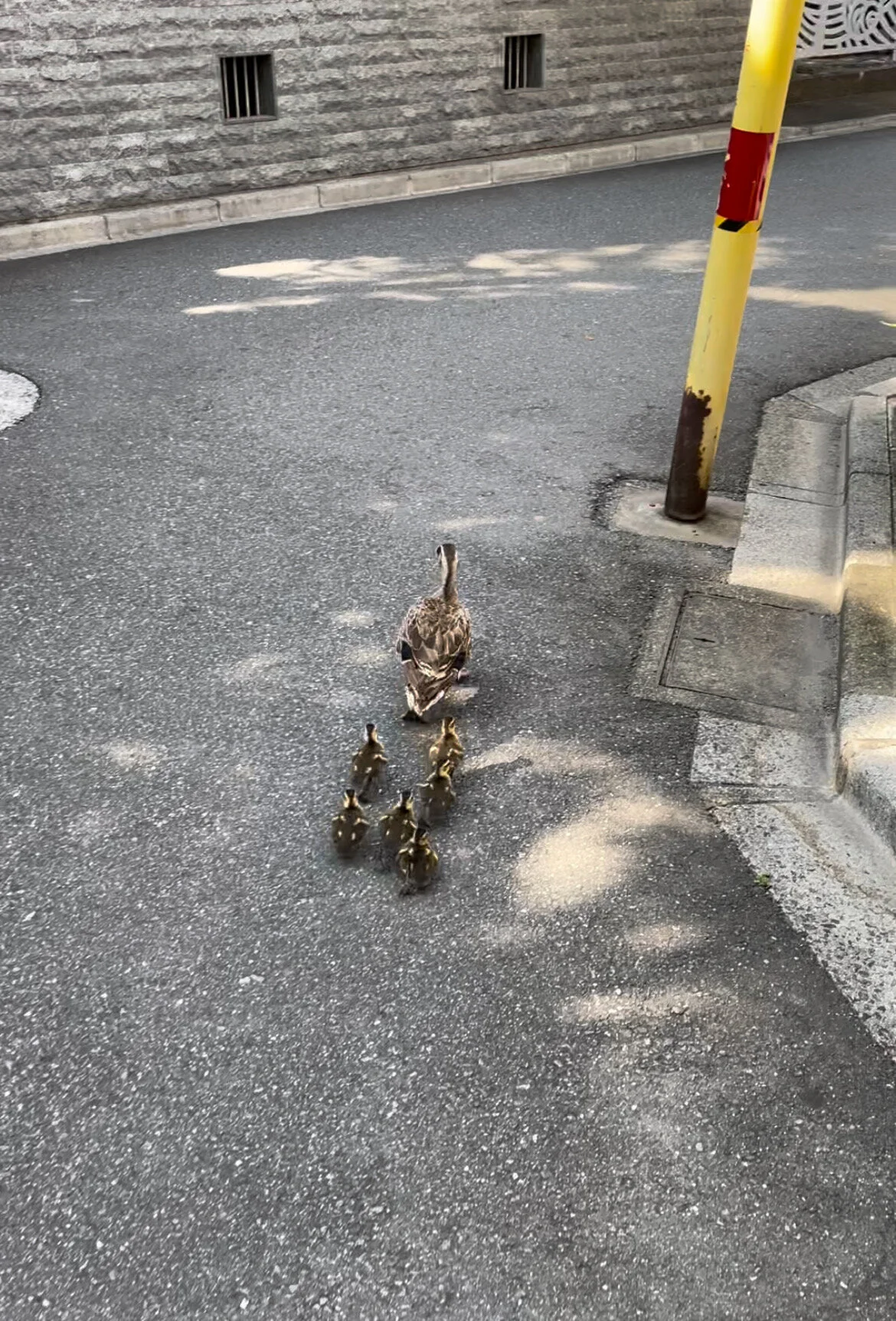I recently applied for a job that required a timed cognitive test that was supposed to discern how quickly I could reason and solve problems. “Reason,” in this case was defined as the ability to calculate percentages and add large numbers without a calculator. It was probably not a great idea to aspire to intellectual heights on a random Wednesday, but a delusional sense of optimism won out.
It went relatively badly. Seconds evaporated as I attempted to remember how to add, divide, and multiply. The test told me I wasn’t nearly as smart as I’d hoped.
The uncomfortable amount of stress sweat dampening my armpits affirmed that I probably wouldn’t enjoy a position where I was required to calculate 34% of 620 within five seconds. At the very least, I was now free to work from home and avoid stressful situations.
Less than twenty-four hours later, I was standing on the second flight of internal stairs leading to our rooftop, surrounded by leaping ducklings running towards a distressed mother honking angrily one flight down. The Internet had informed us that mallards will depart from their nest around sunrise; an earlier morning check had confirmed no ducklings were present. My father went to take a casual look around noon and found six ducklings and their mother stuck in on our enclosed rooftop. Chaos then ensued.
“Get them!” my own mother said, shoving a cardboard box at me.
As I scooped the adorable, fluffy, helpless things into the box, they leapt out of confinement, scattering along the staircase. They ran towards each other, huddled, then tumbled down the remainder of the stairs where their mother was frantically pressing herself against a window looking out to a balcony. Outdoor access was still one more flight down.
The problem with ducks is that they apparently cannot descend stairs. The mother mallard would hop down one step and look back to have her children follow. She would hop down another step, lose her balance, then half fall, half fly down the stairs. The ducklings would rush to follow and launch themselves head over tail.
Once outside, another issue presented itself. The duck went the wrong way. Spooked by a passing truck and admiring pedestrians, she walked in the opposite direction of the nearest body of water. She only agreed to leave after a couple of crows made their appearance in the lower branches of nearby trees. My mother pointed her umbrella at the nearest crow as my aunt and I used our bodies to direct the duck towards water.
Finally on the right path towards the river, we relaxed. Until we noticed that the storm drains situated on the side of the street were just slightly bigger than a duckling. Scrambling together and over each other to keep up with their mother, the ducklings seemed unconcerned with this obvious danger. Three minutes later, two fell in.
Stressful situations are useful in that they show you the character of a person. First, we all gasped. Next, my mother immediately said we had no choice but to leave them. My aunt agreed. The duck stopped in her tracks, realizing that she was two ducklings short. I looked down the storm drain and saw two ducklings staring upwards, chirping for help.
The storm drain wasn’t deep, the bottom was within arm’s reach. I had to try. I inserted my hands into the two slots and pulled. The lid shifted, then rose off the street. Then, to my mother’s horror, I laid down and dived head first into a cloud of mosquitos to scoop up two squirming distressed baby ducks.
I am convinced that ducklings are heart-meltingly adorable to ensure that humans will be less likely to drive over them. We stopped cars whose drivers’ faces lit up at the subjects of our exhausted escort. By now on the main street in my town, couples holding hands, older ladies on bicycles, kids coming home from baseball practice, all stopped to take pictures. It was only several days later that I realized I’d never seen a mother duck strutting along the street with her young, in Tokyo. For about fifteen minutes, we navigated around a parking lot where, at one point, the mother duck hid in some bushes, panting and stressed. It was a convenient hiding place from pedestrians but it didn’t lead to water. My aunt managed to inadvertently get it out of its hiding place by trying to “cool it off” by pouring water on it.
Another 100 meters of public sidewalk populated by too many people, and we were able to push the duck gang into a side street that led straight to the river. With less people on the street, the mother duck seemed to perk up and waddled forwards more confidently. A car slowed behind us and when it finally passed, almost motivated the duck to turn into another, unrelated side street. I blocked it by standing in the middle of its path; it eyed me with frustration before proceeding to the bridge just up ahead.
The Kanda River is the kind of river you’d expect to see in central Tokyo. Greenish-brown, shallow water flows between tall concrete banks. There are shrubs and cherry trees planted on the tops of the concrete banks, but the river itself appears more like a man-made canal contained for the sake of real estate development. You’d never want to swim in it, but it looks like it has enough creepy crawly things inside to keep water fowl well fed.
The duck stopped at the middle of the bridge and looked at the river, almost pleased at the view. Honking again, she launched herself into the air and down to the water. The ducklings looked on, huddling on the edge of the bridge. It was a good ten meters down. As I stood up to get a picture of the ducklings before they forever left us, one leaped over the edge and dropped into the water, immediately bobbing up to the surface like a cork. The others prepared to take the plunge when I saw my mother’s hand shove them off the edge. She would later claim that it was to keep them from returning towards the street. In reality, I think she was just tired of dealing with them.
They swam away, all six ducklings with their mother, down the river. We cheered, our faces red from the heat and sun. Since then, my mother has said she doesn’t want it to come back, that she doesn’t want to worry about another duckling parade again.
Deep down, though, she totally does. A couple days ago, she asked me where we should keep the trellis guard in the meantime, while we wait for next year. She’s been sharing videos of the ducks with friends and neighbors. As for me, I’d happily welcome this kind of yearly aptitude test.
[For a video I put together of the adventure, see below!]









